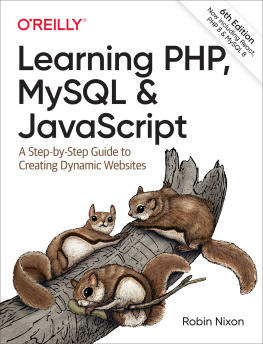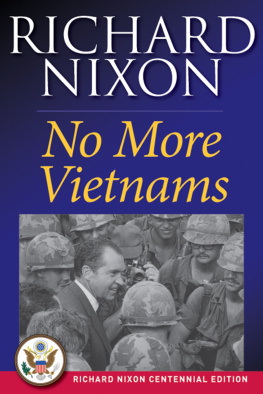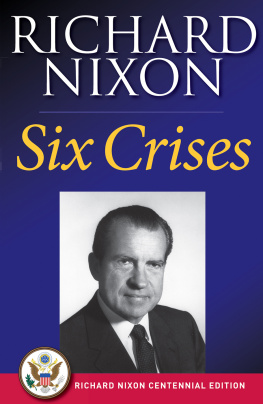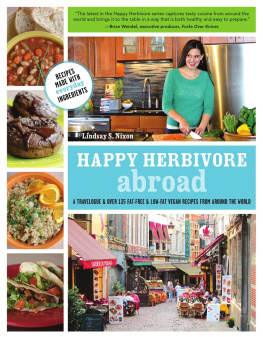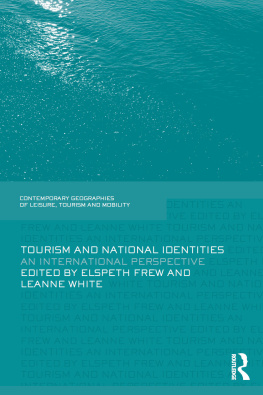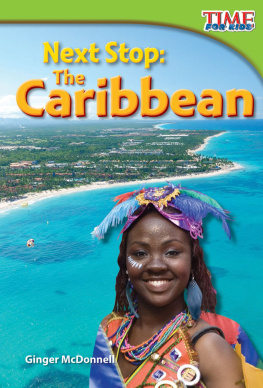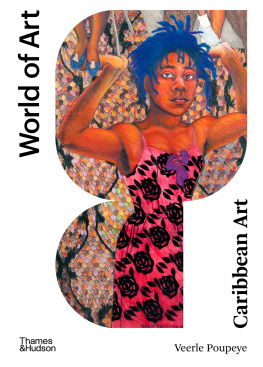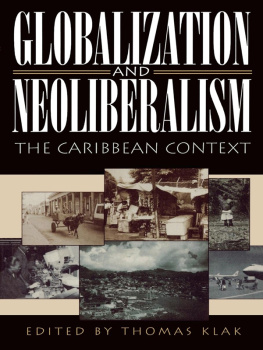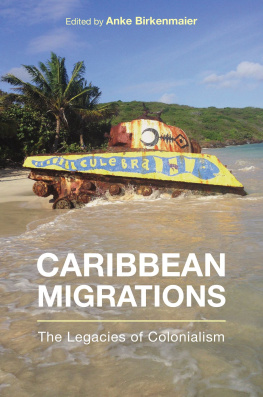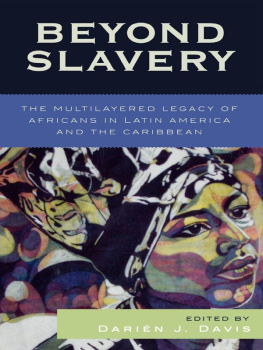RESISTING PARADISE

Anton L. Allahar and Natasha Barnes
Series Editors
RESISTING PARADISE
Tourism, Diaspora, and Sexuality in Caribbean Culture
Angelique V. Nixon

www.upress.state.ms.us
The University Press of Mississippi is a member
of the Association of American University Presses.
Equal Opportunity. Copyright 1986 by Audre Lorde, from The Collected Poems of Audre Lorde. Used by permission of W. W. Norton & Company, Inc.
Of Pirates and Junkanoo, On a Coral Cay, Guh Morning, Columbus, and Guh Night, Columbus. Copyright Marion Bethel. Used by permission.
Welcome Centre and Groove. Copyright Christian Campbell. Used by permission.
Earlier versions of chapters 4 and sections of chapter 6 were published in Anthurium: A Caribbean Studies Journal. Volume 8, Issue 1, Article 45. Spring 2011. Available at http://scholarlyrepository.miami.edu/anthurium/vol8/iss1/45 .
An earlier version of chapter 5 was published in MaComere: Journal of the Association of Caribbean Women Writers and Scholars. Volume 11, 2009.
An earlier section of chapter 6 was published in Caribbean Woman Writer as Scholar. Caribbean Studies Press, September 2009.
Copyright 2015 by University Press of Mississippi
All rights reserved
Manufactured in the United States of America
First printing 2015
Library of Congress Cataloging-in-Publication Data available
British Library Cataloging-in-Publication Data available
For all the cosmic warriors and moon-loving-conjure beings, who create boldly, cause trouble, and fight for justice
For the struggle, to be black, woman, human, and free
CONTENTS
ACKNOWLEDGMENTS
This book represents my journey as a scholar and the many challenges working inside and figuring out my place (or not) in the academy. While I have been fortunate to have good teaching/academic jobs and the privileges that come with being connected to institutions of higher learning, there have been many moments when I thought I couldnt finish this book. But through the encouragement of my friends, chosen family, loved ones, and generous colleagues, Resisting Paradise is a reality. My time in and living near New York (20082014) community building with fellow writers, artists, scholars, teachers, and activists has been incredibly generative and important for my work broadly and this project.
I am thankful for all of my professors and colleagues who pushed me to engage critically and carefully, especially those who offered vital feedback on my work; namely, Leah Rosenberg, Malini Johar-Schuller, and Faye Harrison, whose guidance has been invaluable. During my fellowship at New York University in Africana Studies, I had the great opportunity to work on this project and share ideas in an intellectually rigorous environment. I appreciate NYUs Department of Social and Cultural Analysis for their support during my fellowship and beyond, especially Awam Ampka and Gayatri Gopinath, whose guidance has been instrumental. Im very thankful for the continued relationships I have sustained with the department through the Africana Studies Program and Gender and Sexuality Studies Program, as well as the Institute for African American Affairs. Many thanks to colleagues at the University of Connecticut for their support during my teaching residence in the Womens, Gender, and Sexuality Studies Program, especially Heather Turcotte and Cathy Schlund-Vials for reading my work and giving me significant feedback.
This book would not have been possible without research support and grants I have received as well as opportunities to present my work at several conferences and other engagements over the years. Specifically, I would like to thank Susquehanna University for their generous support as recipient of their Weber Chair of the Humanities Research Grant (20122014), which provided the resources I needed to complete my research.
Recently, I was honored to receive a Fulbright Scholar Grant to teach and conduct research in Trinidad and Tobago for the 20142015 academic year, with the Institute for Gender and Development Studies (IGDS) at The University of the West Indies, St. Augustine Unit. I am very grateful to my colleagues and friends at IGDS who have welcomed me with kindness and generosity during my Fulbright year, especially Patricia Mohammed, Gabrielle Hosein, Rhoda Reddock, Sue Ann Barratt, Kathryn Chan, and Deborah McFee. Also, I am very thankful to be working with brilliant graduate students at IGDS, who remind me how important it is for Caribbean people to be at the center of our knowledge production. This time has been crucial for my ongoing work in the region and has given me an incredibly supportive environment to finish the book.
A major part of research and knowledge production is the process of sharing and exchanging ideas. Therefore, I really appreciate the organizations that center and provide intellectual, political, artistic, and cultural spaces for the dynamic field of Caribbean Studies, namely the Caribbean Studies Association (CSA) and the Association of Caribbean Women Writers and Scholars (ACWWS). In addition, I am thankful for invitations to share my research for special events and keynote presentations, particularly at Columbia University, Oberlin College, Indiana University-Bloomington, University of Connecticut, University of Pittsburg, and University of Toronto.
I would like to thank the editors at the University Press of Mississippi for their incredible support of this project. I appreciate the time and hard work of the entire staff, in particular the acquisitions editor Vijay Shah and editorial assistant Katie Keene, and the anonymous readers who provided important and very useful feedback.
I am indebted to the scholars and writers who have inspired me to prioritize my experiences in theorizing and research, especially Carole Boyce Davies, Kamala Kempadoo, Gina Athena Ulysse, Faith Smith, Angela Davis, M. Jacqui Alexander, Chandra Talpade Mohanty, Patricia Hill Collins, Sylvia Wynter, Audre Lorde, and June Jordan.
I am thankful to all the writers, artists, and other cultural workers whom I had the privilege and pleasure to study and represent in this book. Their work inspires me always and gives me the courage to create/theorize/write boldly. This book would not have been possible without them. I am especially grateful to John Beadle for generous permission to use his powerful artwork Emancipation Boat Cruise for the cover art.
I wish to extend special thanks to the people I interviewed during my fieldwork and research in the Bahamas and Jamaica, especially those who work directly in the tourism industry. These interviews were fundamental for my research and the book. Further, I am very grateful to the writers, artists, and other cultural workers whom I interviewed and/or have had insightful and dynamic conversations with over the years about my project and tourism; namely, Marion Bethel, Nicolette Bethel, Erna Brodber, Malaika Brooks-Smith-Lowe, Christian Campbell, John Cox, Lynn Darville, Esther Figueroa, Lelawattee Manoo-Rhaming, and Arlene Nash-Ferguson.
Most important, I want to acknowledge all the Caribbean people who work in the tourist industry, particularly those in the lowest-paying jobs (in service and sex) and the communities affected by tourism. I embarked on this project in the spirit of resistance to exploitation and systems of oppression; and I emerged from it in that same spirit with assurance that the struggle continues and that it must be led by those most affected. As a former tourist industry worker in the Bahamas, I grappled with these issues in a very personal way but also through an academic lens. Therefore, I want to acknowledge my years of study, work, and migration experience in the United States alongside my years of working in a tourist economy as a bartender/server in various bars/restaurants and as a junior accountant in offshore banking in the Bahamas. These experiences helped me think through the complicated connections among travel and tourism, migration and diaspora, and cultural identity and sexuality.
Next page

